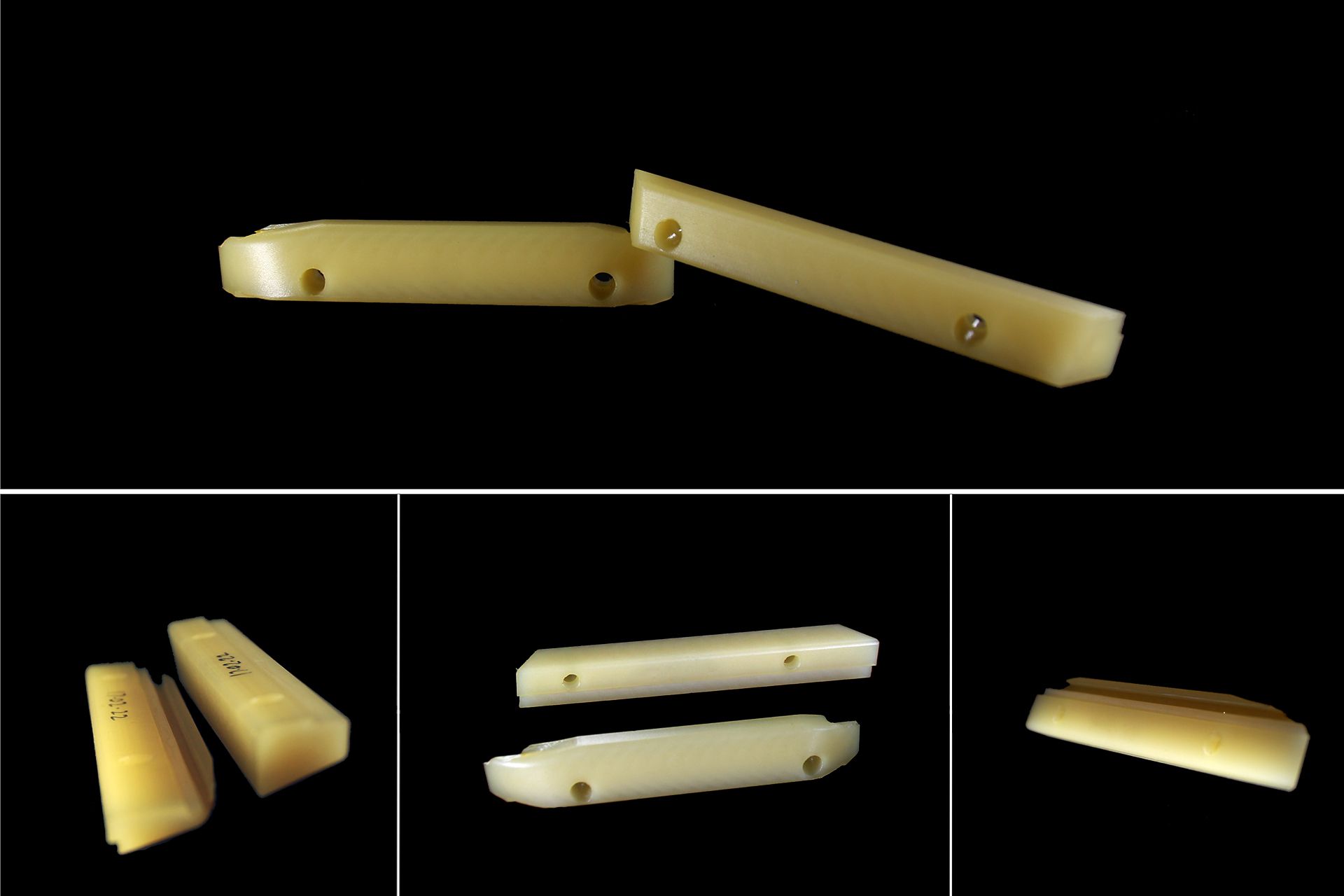
Polymat PA66 (NYLON 66)
Nylon 66, or polyamide 66, is a type of synthetic polymer known for its strong mechanical properties. It is widely used in engineering applications due to its durability and resistance to wear. Nylon 66 suitable for applications such as gears, bearings, and various automotive and industrial components. Its performance can be influenced by factors such as moisture content, temperature, and processing conditions.
Mechanical Properties
- Tensile Strength: Nylon 66 typically has a tensile strength of around 70-90 MPa (10,000-13,000 psi). This makes it quite strong in terms of its ability to resist forces that attempt to stretch it.
- Tensile Modulus: The tensile modulus, which measures stiffness, is approximately 2.5-3.0 GPa (360,000-435,000 psi). This indicates that Nylon 66 is relatively stiff and resistant to deformation under load.
- Impact Strength: Nylon 66 generally has good impact resistance. Its impact strength can vary, but it is often in the range of 2-4 kJ/m², depending on the specific formulation and processing conditions.
- Flexural Strength: The flexural strength of Nylon 66 is typically around 90-130 MPa (13,000-19,000 psi). This means it can withstand bending forces without breaking.
- Hardness: It has a Rockwell hardness of around 90 R scale.
- Fatigue Resistance: Nylon 66 exhibits good fatigue resistance, which is important for applications involving cyclic loading.
- Temperature and Environmental Resistance: Nylon 66 maintains its mechanical strength across a range of temperatures and is resistant to many chemicals, though its properties can be affected by moisture absorption. It is generally stable up to around 85-90°C (185-194°F) but can withstand short-term exposure to higher temperatures.
Thermal Properties
- Melting Point: Nylon 66 has a melting point around 260°C (500°F). This relatively high melting point allows it to maintain structural integrity at elevated temperatures.
- Continuous Use Temperature: It can typically be used continuously at temperatures up to around 85-90°C (185-194°F). Beyond this range, its mechanical properties may start to degrade.
- Thermal Decomposition: At temperatures above its melting point, Nylon 66 begins to decompose. The decomposition temperature is generally around 300°C (572°F).
- Thermal Conductivity: Nylon 66 has relatively low thermal conductivity, which means it’s not an excellent conductor of heat. This property can be beneficial for thermal insulation applications.
Chemical Properties
- Water Absorption: Nylon 66 absorbs moisture from the environment, which can affect its mechanical properties. Water absorption can range from about 2-4% by weight under standard conditions. The absorbed water can increase the material’s toughness and reduce its stiffness.
- Acids: Nylon 66 generally shows good resistance to weak acids but can be attacked by strong acids. For example, it is resistant to dilute acetic acid but can be degraded by concentrated sulfuric acid.
- Bases: Nylon 66 exhibits moderate resistance to bases. It is resistant to dilute solutions of bases like sodium hydroxide but can degrade with prolonged exposure to strong bases.
- Organic Solvents: Nylon 66 is resistant to many organic solvents, but it can be affected by strong solvents such as concentrated phenol or formic acid. It is relatively resistant to aliphatic hydrocarbons and alcohols.
- Oxidizing Agents: It can be susceptible to strong oxidizing agents, which may lead to degradation of the material.
- Oils and Greases: Nylon 66 generally shows good resistance to oils and greases, making it suitable for use in applications involving lubrication.
Application Sectors
Automotive Industry:
Nylon 66 is used for making engine parts such as intake manifolds, timing belts, and fuel system components due to its high thermal stability.
Components like radiator tanks, air intake systems, and various connectors benefit from Nylon 66’s resistance to heat and chemicals.
For durability and aesthetic reasons, Nylon 66 is used in interior trim, gear shift knobs, and seatbelt components.
Textiles and Apparel:
Nylon 66 is used in the production of high-performance fabrics for sportswear, activewear, and hosiery because of its strength and elasticity.
Its resilience and abrasion resistance make it suitable for carpets, rugs, and upholstery.
Electronics:
Nylon 66 is used in electronic housings, connectors, and insulation due to its good electrical properties and resistance to heat.
Consumer Goods:
Items such as toothbrushes, combs, and kitchen utensils often incorporate Nylon 66 for its durability and ease of molding.
Hand tools, screws, and other hardware components benefit from Nylon 66’s strength and resistance to impact.
Industrial Applications:
Nylon 66 is used for gears, bearings, and bushings in various machinery because of its low friction properties and wear resistance.
It is utilized in piping systems where chemical resistance and mechanical strength are required.
Medical Devices:
Nylon 66 is used for its precision and strength in surgical tools and medical device housings.
Implants and Prosthetics: Due to its biocompatibility and mechanical properties, it can be found in certain implants and prosthetic devices.
Aerospace:
Nylon 66 is used in aerospace applications for its high strength-to-weight ratio and resistance to extreme conditions.